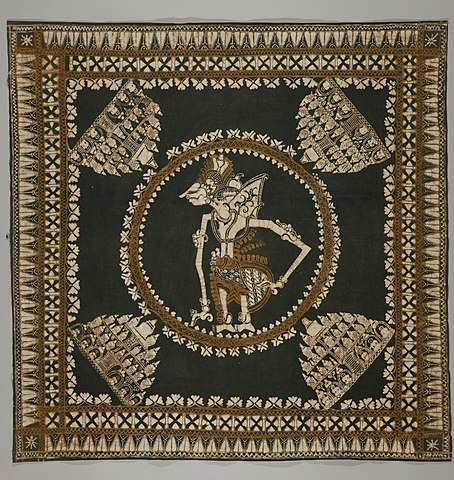
Thammasat University students interested in Indonesia, ASEAN studies, political science, diplomacy, sociology, and related subjects may find it useful to participate in a free 20 February Zoom webinar on Indonesia’s 2024 Elections: Java and Beyond.
The event, on Tuesday, 20 February 2024 at 9am Bangkok time, is organized by the Indonesia Studies Programme of ISEAS – Yusof Ishak Institute, Singapore.
The event announcement explains:
Indonesia’s historic three-horse presidential race took place on 14 February 2024. How did the country decide? This panel will discuss the repercussions of the election results and the key findings of our fellows from their fieldwork in different regions of the archipelagic nation-state. Among the topics discussed will be the dynamics of local/grassroots campaigning in Jakarta, the PDI-P versus Widodo (read: Prabowo-Gibran) campaign competition in Central Java and Yogyakarta, and sentiments in Medan and North Sumatra. The panel will reflect on the meaning of this election for Indonesia’s future political scene and Joko Widodo’s legacy.
About the Speakers
Dr. Deasy Simandjuntak is a political scientist and a political anthropologist. She is Associate Fellow at ISEAS and Adjunct Associate Professor at National Chengchi University, Taipei. […]
Mr. Antonius Made Tony Supriatma is a Visiting Research Fellow at ISEAS. […]
Dr. Ian Douglas Wilson is currently a Visiting Research Fellow at ISEAS. He is also a Senior Lecturer in International Politics and Security Studies, Academic Chair of the Global Security Program, and a Co-Director of the Indo-Pacific Research Centre, Murdoch University, Western Australia. […]
The TU Library collection includes several books about different aspects of Indonesian electoral politics.
Students are invited to register at this link for the event:
https://us06web.zoom.us/webinar/register/6117073803197/WN_7ec3v_asS7-dCnVSqIpc9w#/registration
On his faculty homepage, Dr. Wilson notes:
About me
I am a political sociologist with over 25 years of experience researching Indonesian politics and society.
A longstanding area of research interest has been the relationship between power, violence and representation, that I have pursued through two major interrelated research agendas.
The first of these agendas has been focused on what colloquially referred to in Indonesia as preman, a thug or gangster, but more broadly understood as a particular kind of relational predatory politics involving coercion and extortion. I have used ethnographic work on national and sub-national preman-linked organisations and networks and their relations to capital and state, to develop a methodological approach towards understanding everyday state power.
My second research agenda has focused on the politics of poverty in Southeast Asia. I approach poverty not as a measure of daily income but as an unequal social relation in which the poor are dependent upon the more powerful for basic needs. This produces particular kinds of strategies, relationships, actions and political logics that are frequently misunderstood, overlooked or exacerbated by interventions intended to alleviate poverty or otherwise assist the poor. In my work I have analysed the distinctive kinds of political praxis that is engendered by the conditions constitutive of poverty, and the multiple strategies deployed by urban poor communities in order to secure necessities. I have collaborated closely with urban poor groups communities in Jakarta.
I’m also interested in tensions between popular participation in democracy, including electoral democracy and anti-democratic currents within political and economic elites in Indonesia. I have pursued these via a research fellowship at Yusof-Ishak ISEAS Institute in Singapore.
I’ve conducted numerous collaborative and policy-orientated projects and consultancies, including on ethnic violence in Indonesia (US Institute for Peace), informal and private sector security (Australia-Indonesia Governance Reform Project), patterns of political corruption in budget allocation (with Indonesian Corruption Watch), and the political economy of pro-poor public policy and the politics of development in Southeast Asia (AusAID/DFAT). […]

Last year in ISEAS Perspective, a journal providing analysis of specific current events and their significance for the Southeast Asian region, Dr. Wilson published an article, Indonesia’s appointed leaders and the future of regional elections.
The article’s abstract:
- By the end of 2023, there will be 271 interim regional heads who are appointed rather than elected, accounting for more than half of the regional leadership posts throughout Indonesia.
- The legal basis of the interim leader appointment process has been contentious and subject to challenge, especially when some of the appointees have a substantial term in office before the next election, or when they execute significant policy changes.
- Critics argue that handpicked interim leaders are beholden to those who have appointed them and would use the advantages of incumbency to promote central government interests, and unfairly favour some stakeholders over others in the 2024 elections.
- The phenomenon of appointed interim leaders has intertwined with renewed questioning by political parties and elites of the legitimacy and future of regional elections with senior government ministers, among others, proposing a return to the political appointment of regional leaders and the ending of democratic elections.
The article observes:
To understand the broader implications of the appointment of interim leaders for the 2024
election, it is important to first situate it within the context of the recent history of legislative and political challenges to the status of regional elections.
Its conclusion:
In the face of this, perhaps the main defence for the continuation of direct regional elections is its public popularity, which has remained consistently high since its introduction in 2005. A survey conducted by Political Weather Station (PWS) in January 2023, for example, found that 80.9% were opposed to ending elections for regional leaders, including those for governor.
This mirrors results from a survey done by Lingkaran Survei Indonesia (LSI) eight years earlier of supporters of the Koalisi Merah Putih Coalition, which found that 81.5% of these were in favour of direct elections. 44 Despite its well-known weaknesses and limitations, many Indonesians still consider direct elections an important vehicle for popular agency.
With the 2024 presidential and legislative elections only months away, the spectre of political interference in the process together with a significantly weakened capacity for civil oversight is looming large in public discourse.45 This was highlighted in June following comments by President Jokowi that he was actively cawe-cawe or ‘meddling’ in the 2024 elections, to “ensure a smooth transition of power”.46 The politics involved in the appointment of interim leaders has arguably been a case of systemic cawe-cawe.
It establishes a non-democratic norm for executive leadership appointment that is rationalized via appeals to efficiency, anti-corruption, and the ‘depoliticising’ of political power, and provides opportunities for the use of unelected incumbency to thwart electoral rivals. Interim leaders, in this respect, look something akin to a trial run for possible post-2024 scenarios in which there may be renewed legislative efforts to end elections for regional leadership positions.

(All images courtesy of Wikimedia Commons)
